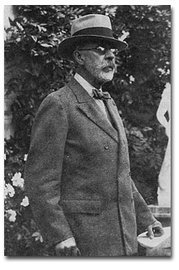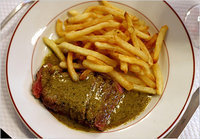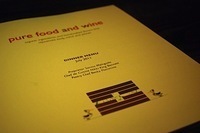Arnon Grunberg's Blog, page 470
August 15, 2012
The decadents

Syria
The Piazza Umberto I in Capri is perfect for crowd watching, especially after 10 p.m. It’s definitely a Felliniesque spectacle. For the decadents the crisis is even more distant than the war in Syria.

August 14, 2012
Questions

Peaches
I’d never heard of Axel Munthe until I visited Anacapri.
Munthe was a Swedish physician and the author of several books, among them the international bestseller “The Story of San Michele” – published in 1929.
In Anacapri you will find the Villa San Michele, nowadays a small museum dedicated to Munthe. The villa, according to its website, is “the bearer of Axel Munthe’s thoughts and feelings about beauty and the great questions of life, but at the same time it is open for personal interpretation.”
The garden is extraordinary and in the café I ate exquisite white peaches.

August 13, 2012
Fellow

Juice
“You should drink water and juice and add lots of sugar,” a friendly woman said after my girlfriend got seasick.
I felt bad for the skipper; he was such a heartwarming and handsome fellow.
Unfortunately I had to tell him: “We cannot continue the tour, the lady got sick.”
(Which is not to say that I didn’t empathize with the girlfriend.)

August 12, 2012
Ferry

Harbor
Around noon the ferry from Naples arrived in Capri.
Via e-mail the concierge of hotel Punta Tragara had informed me that a porter would wait for me at the harbor of Capri. The porter was nowhere to be seen.
A taxi driver said: “I can take you to the city center, but from there you have to walk.”
It was a long walk from the city center to the hotel. Many tourists looked at me with Schadenfreude.
And I was reminded of the movie “The Talented Mr. Ripley” – based on the novel by Patricia Highsmith. Jude Law, if I’m not mistaken asks Philip Seymour Hoffmann: "Tom, how’s the peeping?”
I would say that Capri is all about peeping. Perhaps, all tourism is about peeping.

August 11, 2012
Demand

Babies
Jeremy Waldron’s reviews Michael Sandel’s book “What Money Can’t Buy: The Moral Limits of the Markets” in The New York Review of Books:
‘Pecunia non olet, we are told. Money doesn’t stink. All it does is open up the way to making exchanges; it’s a liberating medium for connecting one set of preferences to another. But doesn’t money taint the goods it is exchanged for, when those goods have not normally been distributed in the marketplace?
It’s hard to generalize, but we can think of some obvious examples. Baby-selling is one. Some people are desperate for children and others would quite willingly list their kids on eBay. But a suggestion some years ago by Richard Posner and a colleague that we might look into the prospect of establishing a market for the adoption of babies to put the demand side into more efficient contact with the supply side struck many people as obscene.1 As the Supreme Court of New Jersey said, when it banned commercial surrogacy in the famous “Baby M” case: “There are, in a civilized society, some things that money can not buy.”2
As with babies, so with sex. Why do we ban, or try to ban, prostitution? The old taboos about unmarried sex have faded but surely it remains illegal because we think that the selling of sex degrades the meaning of ordinary unmonetized intimacy between two people as the consummation of their love. And this tainting of an activity applies also to goods of the spirit. At the beginning of the sixteenth century, a man could go to a prostitute and then pay the church for remission of some of the punishment waiting for him in the hereafter. “When money in the coffer rings, the soul from purgatory’s fire springs.” But isn’t contrition tainted when redemption is purchased in this way?’
(Read the complete article here.)
I reviewed Michael Sandel’s book for a Dutch magazine, and I was slightly disappointed. As starting point for a debating club in high school Sandel’s book is excellent, but as a philosophical inquiry into the negative side effects of monetary transactions Sandel’s book is somewhat disappointing.
For example: why is having a temporary tattoo on your forehead more degrading than being a model walking the runway?
At what point exactly becomes working for a wage degrading?
Mr. Sandel doesn’t even try to answer these questions.
Some of the shortcomings are noticeable in Mr. Waldron’s review as well.
Is the fact that prostitution exists really degrading for a married (or unmarried) couple having sex or as Mr. Waldron puts it “unmonetized intimacy”? Isn’t it important to at least acknowledge that all attempts to ban prostitution have turned out to be rather futile? Can we be sure that sex outside the world of prostitution is by definition “unmonetized intimacy”?
Prostitution has many negative side effects, think of women trafficking, but I would say that these negative side effects are mainly caused by the low social standing of the prostitute and the rather ineffective or corrupted protection (i.e. protection by a pimp) she (or he) is receiving.
One could argue that a masseur offers “monetized intimacy” as well but we rarely perceive his work as degrading for the masseur, his clients or a couple giving each other an unmonetized massage.
I could even argue that’s not the fact that money is exchanged for sex that is causing these negative side effects, but our morality which turns prostitution into a criminal act (even there where it is legal, the social standing of the prostitute remains extremely low) instead of perceiving prostitution as the continuation of psychotherapy by other means.
To avoid misunderstandings: I’m not saying that legalizing prostitution is the solution, I’m arguing that the belief that buying sex is by definition degrading for all people involved in the transaction is not a profound thought, especially not as long as you believe that cleaning dishes for the minimum wage (or less) is a blessing of capitalism in disguise.

August 10, 2012
Better

Play date
A few days ago a friend invited my godson for a play date with her kids.
We went to Teardrop Park -- definitely one of the better parks in NYC, and not only for people with children.

August 9, 2012
Fresco

Devil
Francine Prose on the devil on the site of The New York Review of Books:
“People have always had an appetite for horror and violence. In a fourteenth-century fresco by Nardo di Cione, in Florence’s basilica of Santa Maria Novella, the devil (bat wings, horns, cloven feet) arrogantly rules over his section of the chapel wall, slapping around naked sinners en route to hell. It is one of the liveliest images in the church; it must have been one of the congregation’s favorites. Today, though Satan continues to haunt the private and public cosmologies of the faithful, I—like many Americans, I would assume—can go for quite a long while without having a serious conversation about the devil.”
(Read the complete article here.)
But when was the last time you had a serious conversation about God?
In the Old Testament the devil – rarely mentioned in the Old Testament by the way – is just one of God’s angels, definitely a creature in God’s service.

August 8, 2012
Salad

Choice
More on New York restaurants – nominated for best service: Le Relais de Venise.
And as Sam Sifton wrote in 2009 in The New York Times about Le Relais de Venise, which offers only salad, steak, fries, dessert and an alternative for vegetarians : “Le Relais de Venise did not flourish on the strength of its wine list, however. Lacking restaurant experience, M. Gineste de Saurs had limited ambition. He thought only to offer a salad to start, and then a grilled cut of sirloin the French call entrecôte (and which we call strip steak), with a rich, buttery sauce and a copious amount of fries.
He took no reservations; you simply showed up and were seated. Those decisions turned out brilliantly. They were an assault on the tyranny of choice.”
It’s good to remember that there is such a thing as the tyranny of choice, not only in restaurants, but also in the world at large.

August 7, 2012
Sexy

Wine
Pure Food and Wine is a restaurant on Irving Place that offers raw, vegan food.
The maître d’s were a bit haughty but the waiter was charming and the food was surprisingly good. The wine list is rather impressive and the shakes are excellent.
The prices are steep, but Pure is sexy.

August 6, 2012
Toxic

Society
A friend alerted me to this article by Jacob Silverman on Slate:
“The writer Emma Straub has 9,192 Twitter followers. That might seem like a lot for an author whose first novel, Laura Lamont’s Life in Pictures, hasn’t even come out yet. But Emma Straub is really good at Twitter. She’s funny and charming and evinces great enthusiasm for the books and stories of the fellow authors and critics in her social sphere. Outside of Twitter, Straub writes for many bookish publications, she's the daughter of the novelist Peter Straub, and she runs a small design outfit with her husband that's made posters for everyone from Passion Pit to Jonathan Lethem.
The other day, Straub posted a picture of herself wearing a big flowery crown and holding a hot-off-the-presses copy of her new novel. She signed the post, “Yours, in love with everyone, Emma.” On Twitter and Tumblr, the news was RT’d and Liked and responded to with great excitement by friends and fellow writers and fans, including the Twitter feed of the literary website the Rumpus; followers of Straub on Facebook know that the site has already picked the book for their monthly book club.
But let’s say you’re part of this web of writers, fiction-lovers, literary editors, and readers in the social-media world, and you’re assigned a review of Laura Lamont's Life in Pictures. What if you don’t like it? Or what if you like it, but not unreservedly? Are you willing to say so? Would you be willing to critique Straub’s novel after watching her life scroll out on social media over the last year—indeed, after likely being the recipient or admirer of some small word or act of kindness on Straub’s part?
To the uninitiated, this might seem immaterial, or like the kind of navel-gazing tabulation of credentials that can make the New York literary world insufferable. As a relatively recent arrival to New York, I can say that both are true. But it also matters, because the situation of someone like Straub epitomizes the mutual admiration society that is today's literary culture, particularly online.”
(Read the complete article here.)
The Mutual Admiration Society is popular in academia, in literature; where admiration is badly needed Mutual Admiration Societies thrive.
Of course, after a few beer or cocktails the MAS disappears quickly, but officially it’s nothing but mutual admiration or to be more precise: I-scratch-your-back-you-scratch-my-back.
Mr. Silverman writes: “A better literary culture would be one that's not so dependent on personal esteem and mutual reinforcement. It would not treat offense or disagreement as toxic.”
I wholeheartedly agree, but this would mean a literary culture where success (whatever we mean by “success”) is not only measured by sales figures.

Arnon Grunberg's Blog
- Arnon Grunberg's profile
- 415 followers



